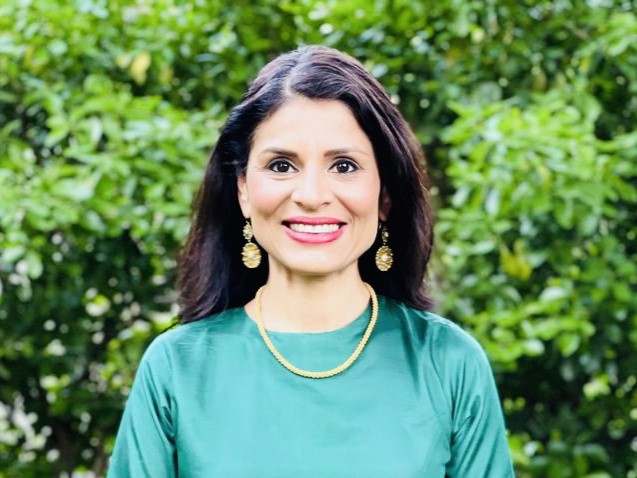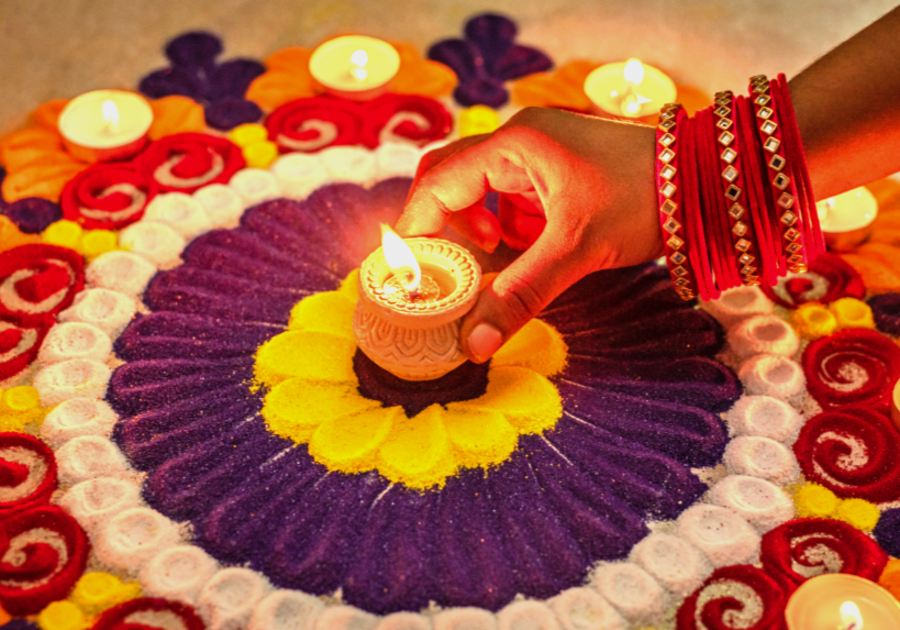Diwali or Deepavali is one of India’s major festivals that is celebrated by Hindus, Buddhists, Jains and Sikhs. This Festival of Lights gets its name from clay lamps 'deepa' arranged in a row 'avali'. Indians light 'diyas' or clay lamps outside their homes to symbolize the inner light that protects them from spiritual darkness. Diwali occurs on the darkest night of the lunar month, which is also the day of the new moon, and is celebrated with fervor for five days.
I grew up in a small town in North India. Every year in fall we would start counting down to Diwali. The weather would turn cool and crisp, the smell in the air was different and laden with spices and incense. For my family it is particularly special since we wholeheartedly immerse in our tradition and heritage, and celebrate it with our friends and family. Diwali celebration and preparation in India is an elaborate and multi-day process. I love every aspect of Diwali! The cleaning and cleansing of household, mithai (sweets) shopping for gifting, purchasing fireworks, going to lavish Diwali parties and making 'rangoli', a decoration drawn on the floor in front of the house. Rangoli is created to welcome Hindu gods to bless the household. My favorite part is the Diwali night, where we gather with friends in the neighborhood to burst fireworks till midnight, while eating delicious food and mithai.
Hindus celebrate Diwali for five days; each day has a special meaning and significance and mythological stories attached to it.
Day 1: Dhanteras
This day marks the beginning of Diwali. On this day families clean their homes and create colorful rangoli patterns. Families go shopping, for items such as gold and silver, pots and pans, and new clothes.
Day 2: 'Choti' or Small Diwali
On this day, families focus on good triumphing over evil. Women and girls apply 'henna' or a tattoo on their hands.
Day 3: Lakshmi Puja or 'Badi'/Big Diwali
This day is the penultimate day of celebration, it is also the darkest night of the month. Families pray to Lakshmi, the goddess of wealth and prosperity, light diyas, and enjoy huge fireworks displays. Typically, doors and windows are left open so that Goddess Lakshmi can enter people’s homes. This is also the day when people have lavish parties that end in card games.
Day 4: Naya Saal or New Year
This day marks the start of the new year according to the Hindu calendar. Friends and relatives visit each other with gifts (usually mithai) and best wishes for the new year.
Day 5: Bhai Dooj
This day is a celebration of the love between brothers and sisters. There are ceremonies to celebrate their bond and love.
May your Diwali be free from darkness and abundant with light!

Anu Sehgal is the founder of The Culture Tree, which promotes South Asian cultural literacy through language, educational, and cultural programs. The institution aims to create empathy, respect, and understanding towards all different cultures, and further inclusivity, while still helping to address questions about identity relating to heritage.



